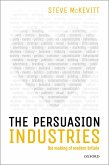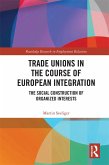At the end of the twentieth century, Britain was a consumer society. Commerce, intoxicating and addictive, had almost entirely colonized modern life. People were immersed in, and ultimately defined by, promotional culture. The things they consumed had overtaken class, religion, geography, or occupation as the primary form of self-identity and self-expression. For much of the twentieth century all forms of brand communication- from political campaigning to product advertising- were based on the theory of rational appeals to rational consumers. There was only one problem with this theory: it was wrong. The Persuasion Industries: The Making of Modern Britain examines develops in marketing, advertising, public relations, and branding. It explores the role they played in the emergence of the consumer society. New ideas from fields of behavioural psychology and economics, together with internal developments such as planning, positioning, and corporate branding allowed persuasion to become the driving force within many commercial enterprises. Together these changes led to the emergence of an alternative emotional model of brand communication. A simple idea that proved so compelling it changed the world we live in.
Dieser Download kann aus rechtlichen Gründen nur mit Rechnungsadresse in A, B, BG, CY, CZ, D, DK, EW, E, FIN, F, GR, HR, H, IRL, I, LT, L, LR, M, NL, PL, P, R, S, SLO, SK ausgeliefert werden.









